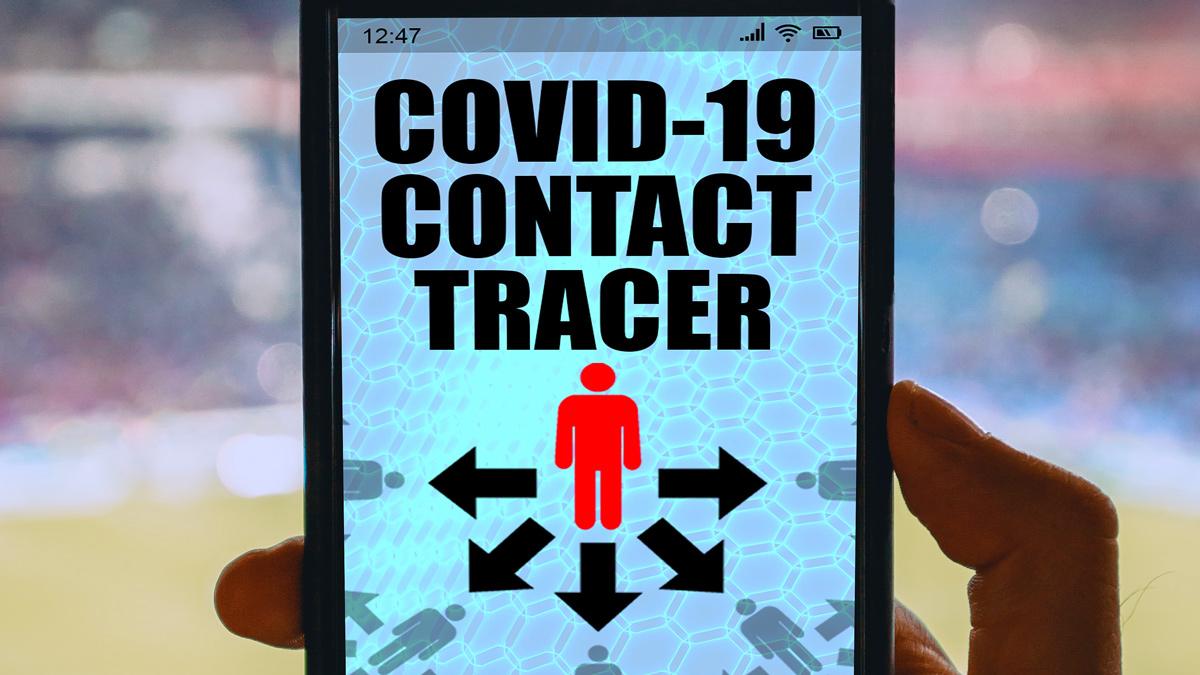StopCovidNI Q&A: How Northern Ireland's contact tracing app works
- Published
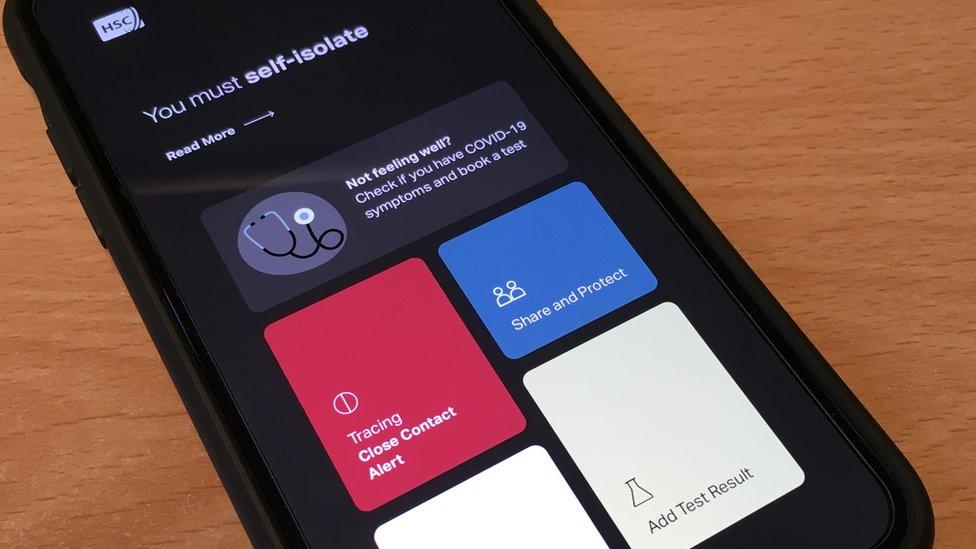
Northern Ireland's StopCovidNI contact tracing app has now been downloaded more than half a million times since its launch in July.
The software has notified more than 22,500 users they must self-isolate for 14 days - prompted when a close contact submits a positive test - according to Northern Ireland's health department.
However, despite the app's uptake, questions remain about its reliability and users' privacy.
BBC News NI answers some of the most common questions about the app.
How does the StopCovidNI app work?
When someone adds a positive test into the app, a notification is triggered for other users who are deemed to be at risk of exposure.
This "close-contact alert" is defined as a person - or their mobile phone, at least - that has been within two metres of the infected person's device for at least 15 minutes.
The person who receives the alert is not told when or where the exposure occurred, but it will have been in the previous 14 days.

The app then tells the user to self-isolate for 14 days and provides information such as how to book a test if symptoms develop.
In a new version of the app, due to be released at the end of November, users will be given the date when their contact occurred and when their isolation period can end.
Health Minister Robin Swann said this would limit the amount of time people were being forced to stay away from work and education.
The "greater precision" on self-isolation periods would not compromise anonymity, added Mr Swann.
Do I need to download local apps in the Republic of Ireland and Great Britain if I travel?
As of Thursday 5 November, no.
Previously, Northern Ireland's app linked to those used in the Republic of Ireland, Scotland and Jersey.
England, Wales and Gibraltar have now been linked, with each app communicating anonymously to push exposure notifications to affected users.
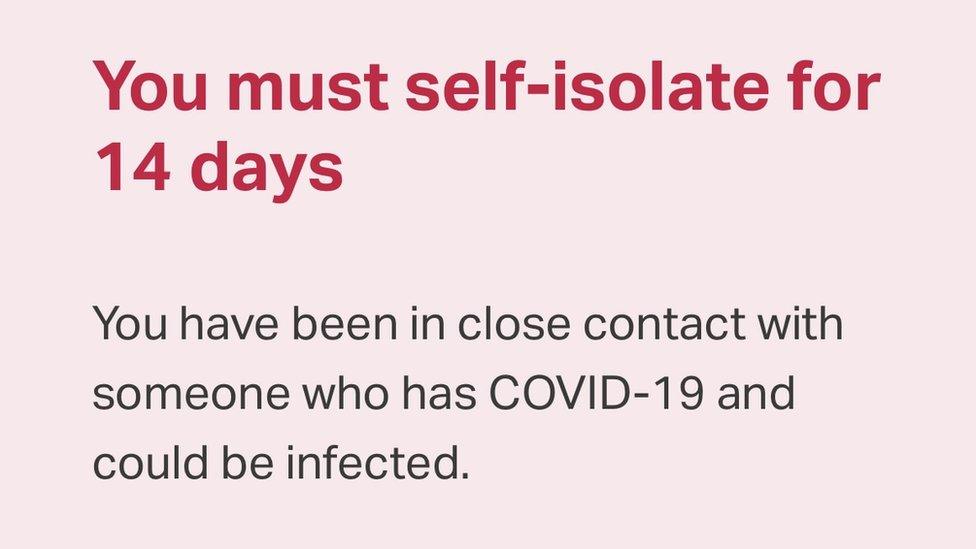
The app changes to give advice on next steps after an exposure notification is triggered
Indeed, some of the 500,000 downloads of the Northern Ireland app may be users from outside who have not needed it.
However, NI's Department of Health says people should download the app of the country in which they live, as this will be integrated with the country's test registries should they need to enter a positive test.
It also said that there have been "11,000 diagnosis exchanges between Northern Ireland the Republic of Ireland".
Can police issue fines to those who do not self-isolate because of the app?
Since March, the police in Northern Ireland have issued 47 fines of £1,000 to people found to be in breach of orders to self-isolate.
However, the Department of Health says the StopCovidNI app is confidential, and neither knows who has received an alert, nor tracks their location.
"There is no possible personal information that could be shared from the app with the police," says a department spokesperson.
Does the app record information when I walk past someone in the street?
To an extent, yes, but not every encounter will be deemed sufficiently at risk to result in an exposure notification.
This notification will happen when the app recognises the user has been within two metres for 15 minutes or longer of someone who later enters a positive test result.
Does the app recognise walls?
The app does not recognise obstacles such as walls or screens, meaning it cannot take into account safety measures installed in the likes of workplaces, restaurants or hotels.
If I take precautions, such as using personal protective equipment (PPE), can I ignore app notifications?
The app does not tell the user from where or when the exposure notification originates, but it will have been in the previous 14 days.
During periods when people can use appropriate PPE or screens, for instance at work, "you are advised to deactivate the app for as long as you are protected by these measures", says the Department of Health.
This can be done by using a pause function in the "tracing active" panel of the app.
What about QR codes from pubs and restaurants - can they register if I have breached the app's self-isolation order?
Many establishments such as pubs and cafes have encouraged people to scan QR codes to help log information in case it is needed for contact tracing.
However, the app does not use data gathered from QR codes and the Department of Health warns the technology is not secure.
Officials say such codes can be used to hack smartphones, so the department decided not to incorporate them in the app, said a spokesperson.
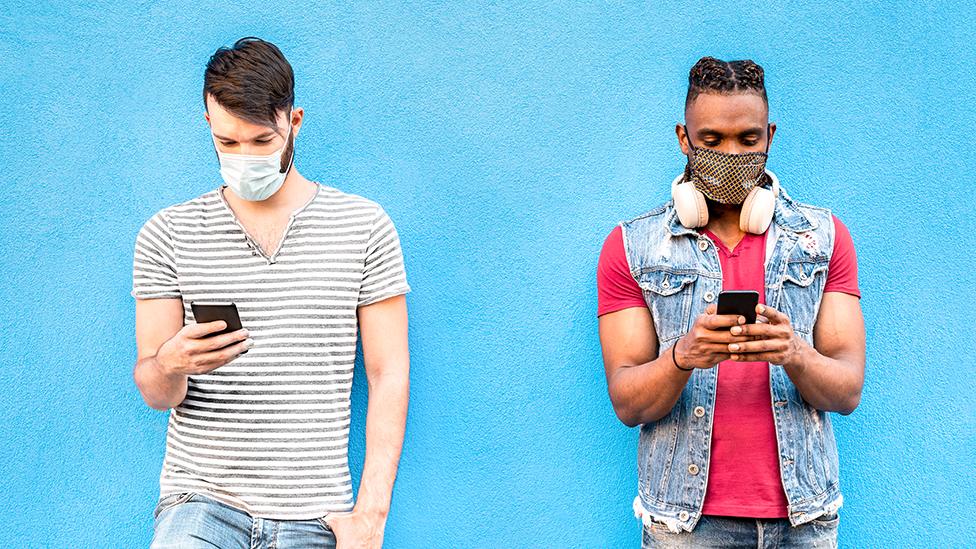
Apps in Northern Ireland and the Republic of Ireland communicate with each other
What are 'key matches'?
Once the app is installed, a section in your phone settings - "exposure notifications" or "exposure logs" - will list a number of "key matches".
This is a record of the times your app has communicated with other devices via Bluetooth; be it a few people at work or potentially hundreds in a shopping centre.
The keys contain anonymous information and are discarded after 14 days.
Their purpose is to allow the software to notify the user if they were in close contact with someone who later registers a positive Covid-19 test.
If this happens, an exposure notification is triggered and the app will change to reflect the new advice to self-isolate.
How does this differ from other forms of contact tracing?
The app is an alert system for devices that have been in close proximity; however, it is not the only way you may be informed you are at risk and must self-isolate.
When someone receives a positive Covid-19 test they will receive a text message from contact tracers working for the Public Health Agency (PHA).
This will ask the individual to submit the details of people with whom they came into close contact in recent days.
These people will then receive a text from "HSCTracing" with the instruction to self-isolate for 14 days.
This process is separate and different from the app.
It is possible that someone will receive both the text as well as an app notification, if they were in close proximity to the positive case.
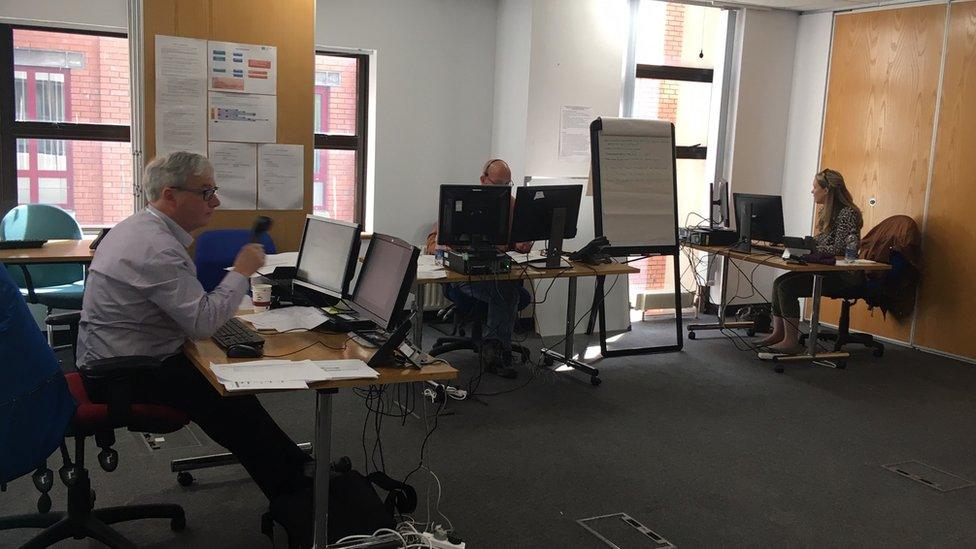
Staff at Belfast's contact tracing centre, run by the Public Health Agency
Does the app drain my phone battery?
Having Bluetooth switched on will always increase battery usage, however, the Department of Health insists it uses a low-energy 'Bluetooth LE' setting to limit this.
For the technology to be fully effective, Bluetooth needs to be on for as long as possible. However, as above, it can be switched off when the user is assured they are in a safe setting or using PPE.
Can anyone 'prank' the app by entering a positive test?
Only the user can enter a positive test result into the app. This will not be done by health or testing staff.
If the user tests positive they receive an SMS text from "HSCResult". This will include a six-digit authorisation code that lasts for 24 hours.
This needs to be entered into the test section of the app.
The Department of Health said the code has over a billion combinations.
What next for the app?
Northern Ireland was the first of the UK nations to introduce a Covid-19 tracing app and the quick roll-out of such technology posed challenges with operability and privacy concerns.
The total number of downloads represents a high uptake of the Northern Ireland app in just over four months.
From October, the app has been available to 11 to 17-year-olds.
Another future development in the app could arise from the planned greater contact tracing cooperation with other European countries.

SOCIAL DISTANCING: What are the rules now?
SUPPORT BUBBLES: What are they and who can be in yours?
FACE MASKS: When do I need to wear one?
TESTING: What tests are available?

- Published30 July 2020
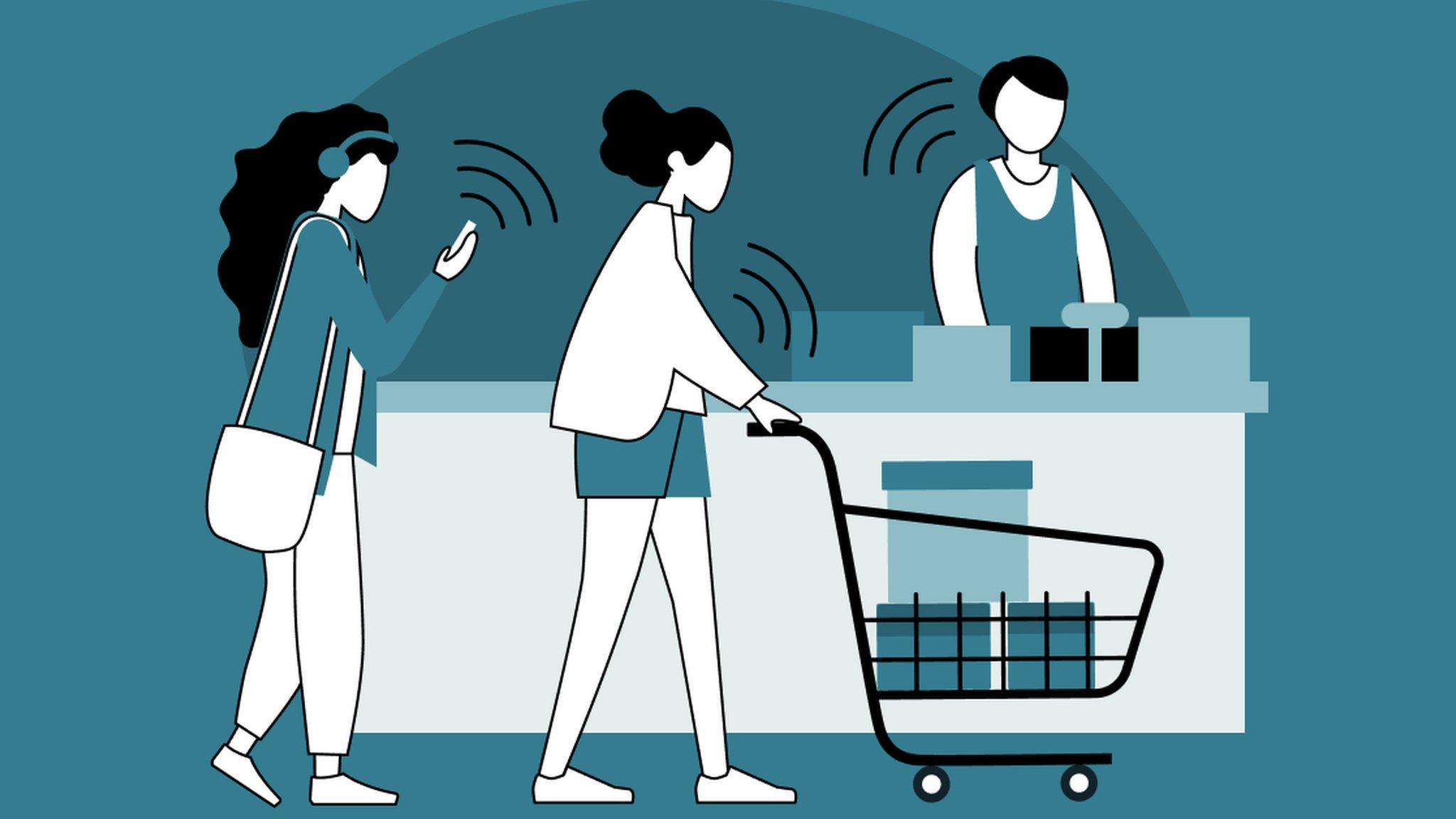
- Published28 October 2020
- Published27 October 2020
